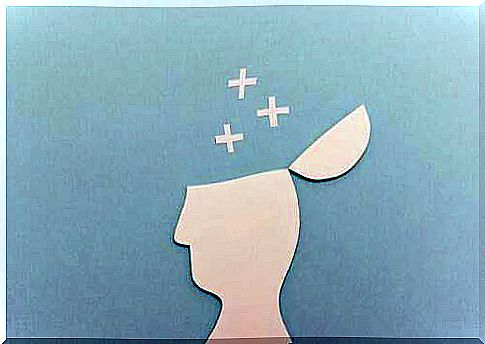Interesting Psychological Effects

Psychology is a science that can offer explanations for a series of events that occur every day. Without realizing it, all of us, as human beings, fall into the trap of some distortion or psychological effects.
Some psychological effects harm us, others do not; some are typical of certain societies, others are common among adolescents, etc. But anyway, they have in common that the brain uses loopholes to economize all the information we find ourselves managing during the day. This sometimes triggers some interesting effects.
Economizing the information we acquire during the day is essential. While our brains can sometimes make mistakes, most of the time these distortions help us adjust.
Think of the times of the caves. It was better to be fast and effective than analytical and slow. This latter aspect, even if it could lead to a more correct answer, could also mean that it was too late .
It is also certain that nowadays advertising, businesses and culture have echoed these psychological effects we usually fall into and have focused on them as a means to improve sales. And they succeed. Below we offer some insights into the most common and interesting psychological effects, although there are many more. Which one do you recognize yourself with?

The most interesting psychological effects
Barnum effect
How many times has it happened to us to read the horoscope and think: “this is exactly what is happening to me!”. Well, no. Again, it is the brain that deceives us. We haven’t read what’s happening to us specifically. We have been victims of the Barnum effect, also known as the Forer effect.
This effect occurs when we are told or read some descriptions that a priori seem to fit perfectly with what we know about ourselves; however, if we analyze them well, we will notice that they are nothing more than generic, vague and imprecise descriptions that could fit the profile of a large part of the population.
Let’s give it a try by reading the following:
“Pay attention to the projects you undertake, Libra, you always take on more than you can bear. Review your limits. This week someone will ask you for help, try to do what you can but don’t feel responsible for their emotional change. You may get a slap in the face of your health, but it won’t last long. You will soon be back in charge as you always do. On Monday and Tuesday you will feel more active, but the pace will then slow down little by little. “
Almost all of them could match the description. Who is not looking to take on a personal project and sometimes ends up working too much? Or does he not have someone close to him who is having a hard time? Who hasn’t cooled down every now and then or has back pain? Monday and Tuesday we are more active, of course, we come from the weekend, but later we accumulate tiredness.
Anchor effect
This effect is used a lot by advertising campaigns. Imagine shopping during the sales and noticing a coat you like. You find two labels: one that shows a very high price and the other a much lower one, which would be the current price.
Without thinking twice, buy the coat. What happened? The first price has done as yet, which served as a reference to think it was a bargain and that you couldn’t waste the opportunity.
Ultimate attribution error
It occurs when we overestimate the amount of people who agree with our thoughts. It is a form of exaggerating confidence in our beliefs, even if they are wrong. This effect can have negative consequences: it prevents us from opening ourselves to the world, to the ideas of others, to how others judge or feel.
We therefore risk losing valuable information that would be of great help ; for example, if we own a business and work with multiple people who don’t think alike and who might offer other ways of looking at things.

Illusory correlation
It causes us to overestimate the relationship between two variables that are actually independent. Let’s think about pathological players. They can say to themselves “it’s my time, because no one has won at slot machines for a long time.”
We relate time to the probability that the game offers a prize, which we rationally know is not the case, even more so if we know that slot machines follow a variable or random programming.
Self-fulfilling prophecy
Also known as the Pygmalion effect in education, or the Rosenthal effect in organizations and businesses. It is an effect that emerges when we have deeply rooted ideas on a particular topic and act accordingly.
It happens that reality, in the end, ends up confirming those ideas as if it were a prophecy. For example, a pathologically jealous person, with his bouts of jealousy, may end up encouraging that infidelity based on an unfounded principle. His behaviors of interrogating his partner, spying on him and tormenting him tire him to the point of wanting to end the relationship.
Effect of the blind spot
The blind spot effect argues that most of the time we don’t recognize our distortions and effects. We think it is something that “happens to others”, but to a greater or lesser extent we all distort and experience different effects.
As you can see, no one can get rid of the psychological effects. The interested aspect is to know them and recognize them when they appear, such as with sales, with promotions, with addictions, etc.
In this sense, when psychological effects do us more harm than good, it is interesting to try to name them, to know that they exist and not to fall victim to them.









